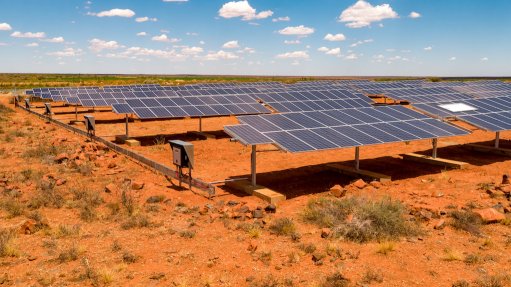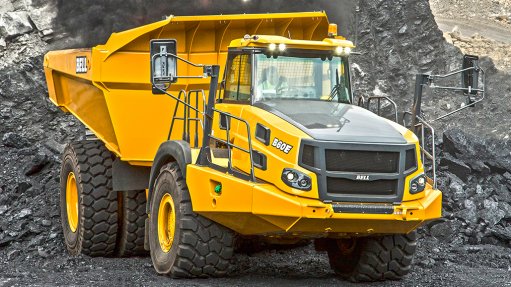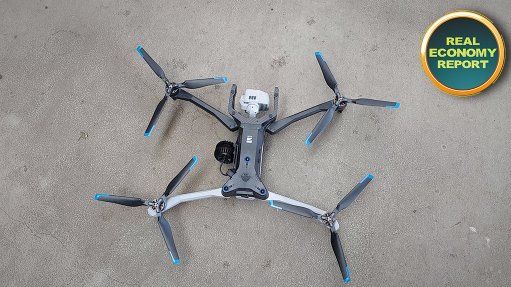Solar in SA: There’s still huge untapped potential, especially with the right supporting software
This article has been supplied as a media statement and is not written by Creamer Media. It may be available only for a limited time on this website.
South Africa has embraced solar PV in a big way. In 2023 alone, the country imported R17.5 billion worth of solar panels, representing 5 000MW of potential energy, as businesses and private households looked to sidestep load shedding (the ability to feed back into the grid in cities such as Cape Town hasn’t hurt either). Ironically, those efforts have helped the country achieve its longest period without load shedding in years.
As impressive as South Africa’s embrace of solar has been, there is still incredible untapped potential in the sector. The country has, on average, 2 500 hours of sunshine every year and plenty of space for even the most ambitious solar PV plants. The country’s 6000-plus megawatts of installed solar capacity is dwarfed, for example, by Germany’s 81.3GW.
Harnessing that potential, however, will require a concerted and coordinated effort by all industry players, including distributors, installers, and maintenance crews. And according to Anand Subbaraj, CEO of field service management software specialist Zuper, it’ll also require the right supporting technology.
“There’s no doubt that South Africa’s untapped solar potential is immense,” he says. “But it’s also important to remember that this is relatively new territory for South Africa, especially solar installations for domestic use. . So successfully navigating the expansion into the domestic, as well as industrial and grid-scale, will require the right kind of support, including that offered by a good field service management platform.”
This, he says, is especially important in a country like South Africa. That’s not only because it’s the most affordable way of scaling up the country’s energy capacity but also because renewable energy forms such as solar PV will be crucial in the country’s fight against the climate emergency.
But how can field service management software help the country achieve this potential?
“Let’s take a grid-scale solar PV site, for example,” says Subbaraj. “That site will require regular maintenance for the panels, their supporting infrastructure, and any onsite batteries they may feed. Otherwise, its performance will degrade and the site’s lifespan will be dramatically shortened.”
“When the techs for that site go to check connections or action repairs, what does the documentation process look like?” he asks. “How much of it is a manual, time-consuming, paper-based exercise? And what if a third-party maintenance or cleaning crew needs to speak to the customer in real-time? How easy is it for them to do so?”
As the Zuper CEO points out, field service management software aims to eliminate those inefficiencies. It does so by digitising and automating workflows and customer interactions for the field service aspects of a business.
“Whether a team is installing panels on a major energy storage project, repairing the racking system on a carport array, or doing maintenance to a string inverter for a residential rooftop system, processes can be complex and require efficiency,” he adds. “With field service management software, all aspects of work order management, such as data exchange, scheduling, dispatch, and communication, are greatly simplified. In most cases, they can be managed with a few taps of a smartphone app.”
That’s not the only area where field service management software is beneficial either. It can also help ensure that management and supervisory teams have a full view of team capacity, utilisation, and performance. In addition to that, it can assist with preventative maintenance and asset management. Zuper’s FSM technology automates preventive maintenance schedules which will prolong the life of the asset/panel.
Another area where field service management software can be helpful in the solar sector is communication among back offices, field teams, partner installers, and customers.
“With a well-built mobile component, all stakeholders are kept in the loop with real-time and automated notifications and alerts,” says Subbaraj. “Field techs and administration can share job notes, attach images, and leave instructions within a work order. Communication with partner installers is immediateand automated when needed. This allows a solar company’s teams to deliver a user-friendly, instantaneous, and digitised service experience.”
Other benefits, Subbaraj points out, include making it easier to collect and analyse data, improving efficiency for paperwork and data administration, streamlining financing and accounting processes, and simplifying digitised asset and inventory management.
“While there is currently a growing demand for solar in South Africa, there’s no guarantee that this will always be the case,” he says. “For the country to reach its full solar potential, players in the sector must do everything they can to capitalise on the current demand. A large part of that means ensuring that early customers have the best possible installation and maintenance experiences and realize the value of their investment. Field service management software makes that much more easily achievable.”
Comments
Announcements
What's On
Subscribe to improve your user experience...
Option 1 (equivalent of R125 a month):
Receive a weekly copy of Creamer Media's Engineering News & Mining Weekly magazine
(print copy for those in South Africa and e-magazine for those outside of South Africa)
Receive daily email newsletters
Access to full search results
Access archive of magazine back copies
Access to Projects in Progress
Access to ONE Research Report of your choice in PDF format
Option 2 (equivalent of R375 a month):
All benefits from Option 1
PLUS
Access to Creamer Media's Research Channel Africa for ALL Research Reports, in PDF format, on various industrial and mining sectors
including Electricity; Water; Energy Transition; Hydrogen; Roads, Rail and Ports; Coal; Gold; Platinum; Battery Metals; etc.
Already a subscriber?
Forgotten your password?
Receive weekly copy of Creamer Media's Engineering News & Mining Weekly magazine (print copy for those in South Africa and e-magazine for those outside of South Africa)
➕
Recieve daily email newsletters
➕
Access to full search results
➕
Access archive of magazine back copies
➕
Access to Projects in Progress
➕
Access to ONE Research Report of your choice in PDF format
RESEARCH CHANNEL AFRICA
R4500 (equivalent of R375 a month)
SUBSCRIBEAll benefits from Option 1
➕
Access to Creamer Media's Research Channel Africa for ALL Research Reports on various industrial and mining sectors, in PDF format, including on:
Electricity
➕
Water
➕
Energy Transition
➕
Hydrogen
➕
Roads, Rail and Ports
➕
Coal
➕
Gold
➕
Platinum
➕
Battery Metals
➕
etc.
Receive all benefits from Option 1 or Option 2 delivered to numerous people at your company
➕
Multiple User names and Passwords for simultaneous log-ins
➕
Intranet integration access to all in your organisation





















